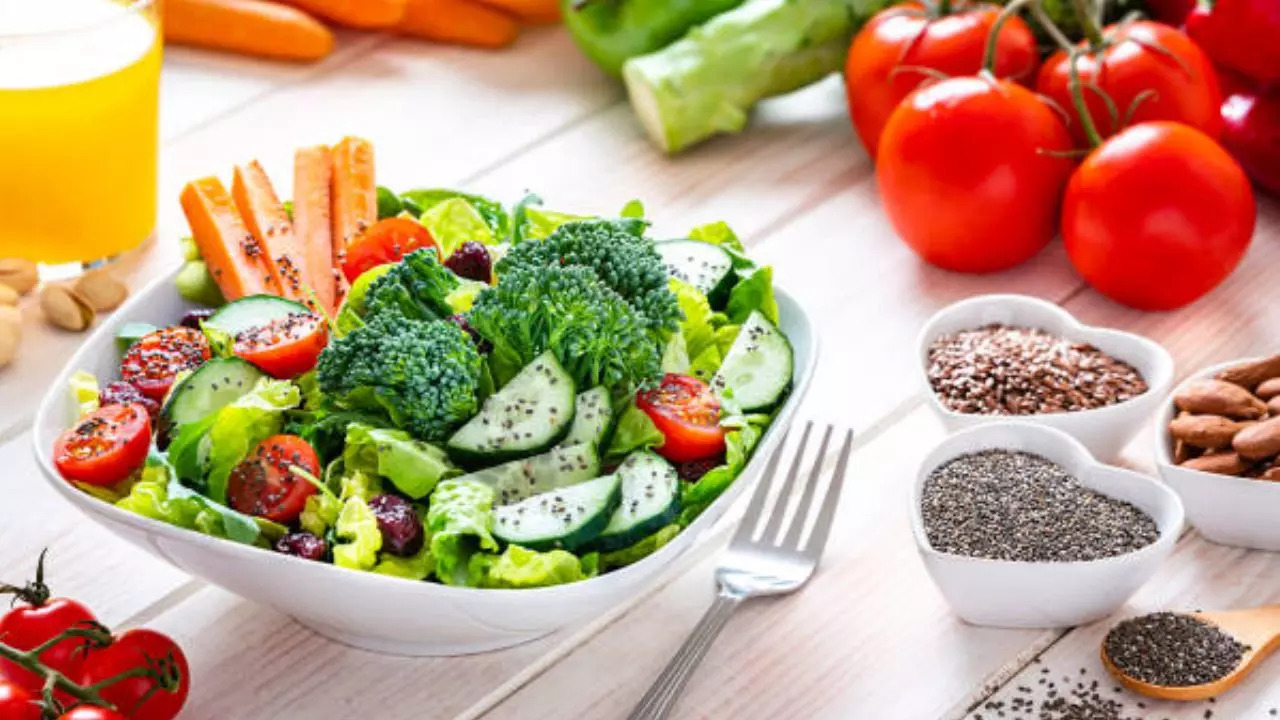Is it safe to eat salad in the evening? Expert warns about the risks
Eating salad in the evening can be nutritious, but if eaten too late it can cause digestive problems or disrupt sleep. Although a light, balanced salad can be beneficial, people with certain health conditions should be careful about the timing and ingredients of salads. Read on to know why you should not eat salad for dinner.

Is it safe to eat salad in the evening? Expert warns (Image courtesy: iStock)
Salad Known for its nutrients that help keep you full, it is a valuable part of a healthy diet DietProvides an excellent source of fibre, aids in weight management, regulates blood sugar levels, and promotes gut health. However, consuming fibrous foods at the right time of the day is also something that one must keep in mind. While salads are packed with vitamins, minerals, and fibre, the timing of their consumption can affect how your body processes these nutrients. So is it safe to eat salads in the evening? We got in touch with Madhura Parulkar Behakhi, Head Nutritionist and Dietician, Cult Transform, who shared some evening meal options.
Why should salad not be eaten in the evening?
Dr. Madhura explains that many people like to eat salad for dinner, but does that mean it is a bad choice? This is not the case at all. There is no strict rule against eating salad in the evening, but there are some reasons why it may be better to eat salad before 4 pm.
Digestive problems: For some people, raw salads can be challenging to digest, especially when eaten in large quantities at night. This can disrupt digestion, leading to uncomfortable symptoms like bloating and, surprisingly, constipation. Constipation may seem counter-intuitive since salads are rich in fiber, but fiber requires adequate hydration to move smoothly through the digestive system. If you reduce your water intake, eating fiber-rich foods like salads in the evening may increase your risk of constipation.
Quality of sleep: A poorly balanced salad may lack certain nutrients needed for a good night’s sleep, such as tryptophan—an amino acid found in protein-rich foods. Since vegetables are typically lacking in this nutrient, a salad-rich dinner may affect sleep quality. In addition, the effect of a raw salad on the stomach can cause discomfort, which can disrupt your sleep.
Nutrient balance: While salads are often considered a healthy food option, they may not provide your body with all the essential nutrients needed for growth and development, especially if eaten as the main meal in the evening. Salads can make you feel full for a longer period of time, which may cause you to skip other meals and, as a result, lose out on important proteins, fats, vitamins, and minerals.
“Eating salad at night is not inherently bad, but it is important to be mindful of the potential digestive and nutritional challenges it may cause. Instead, one should choose a balanced meal that includes a variety of nutrients which may be more beneficial, especially in the evening,” he added.
What are its alternatives?
Dr Madhura has suggested some alternatives to salad for dinner. These include:
Choose cooked vegetables
Raw salad may be difficult for some people to digest, so it is beneficial to include vegetables in salad by cooking them, such as boiling, steaming or baking them.
Enjoy fiber-rich soups
Another way to include vegetables in your diet is through soups, especially mushroom, tomato or spinach soups, which are rich in fiber. Avoid straining the soup as this can remove essential nutrients and you will just get flavored water.
Snack on boiled corn or peanuts
For a tasty and fiber-rich snack, eat boiled corn with feta cheese or a handful of boiled peanuts. These options not only satisfy hunger but also contribute significantly to your daily fiber intake.
Enhance meals with vegetable purees
Add fiber to your meals by grinding vegetables into a puree and adding them to flour or dal. This simple step can increase both the nutritional and taste of your meals, making it easier to meet your fiber needs.
Get the latest news live on Times Now, along with breaking news and top headlines on diet, health and more from around the world.


